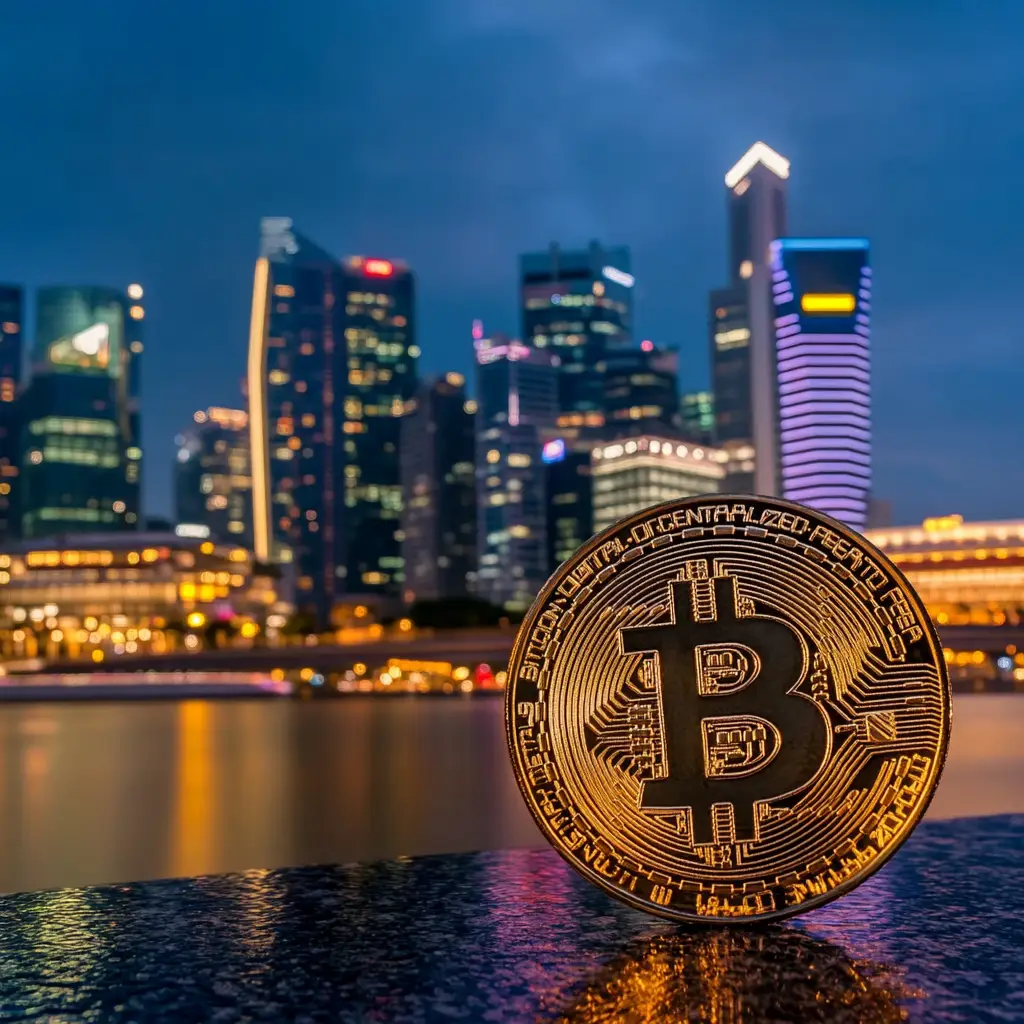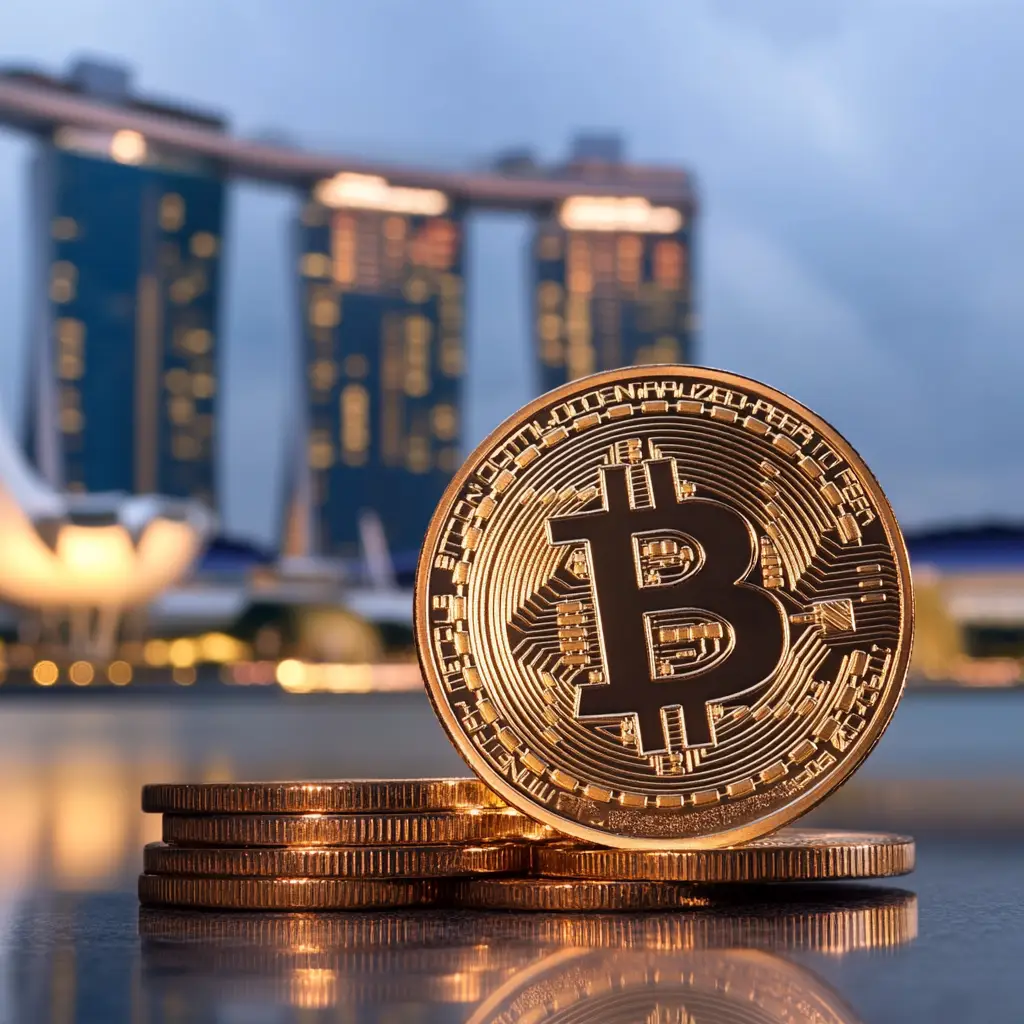Bitcoin

Latest Bitcoin Price Updated In SGD

Bitcoin, the first decentralized digital currency, has transformed the financial landscape globally since its inception in 2009 by an anonymous entity known as Satoshi Nakamoto. This comprehensive guide explores the fundamentals of Bitcoin and delves into its adoption and regulatory environment in Singapore, a leading financial hub in Asia.
What is Bitcoin?
Bitcoin is a decentralized cryptocurrency, not issued or regulated by any government or central bank. It operates on a technology called blockchain, a distributed ledger that records all transactions across a network of computers. Bitcoin offers lower transaction fees than traditional online payment mechanisms and, unlike government-issued currencies, it is operated by a decentralized authority.
- Creation and Mining: Bitcoins are created as a reward for a process known as mining. They can be exchanged for other currencies, products, and services.
- Supply: The supply of Bitcoin is capped at 21 million, a limit set by its underlying algorithm to prevent inflation.
Bitcoin’s Technological Foundation
At the heart of Bitcoin’s functionality is the blockchain technology, ensuring transparency and security through cryptographic techniques.
- Blockchain: A blockchain is a public ledger that records Bitcoin transactions, managed autonomously without any central authority.
- Security and Privacy: Transactions are secured by cryptography, and while transaction details are visible in the network, personal information is not.
Global Adoption of Bitcoin
Bitcoin’s adoption has seen exponential growth worldwide. As a digital asset, it challenges traditional currencies and financial systems and has sparked a wave of innovations in digital payments.
- Market Dynamics: The value of Bitcoin has seen considerable fluctuations, attributed to varying factors from technological advancements to regulatory news.
- Legal Status: Bitcoin’s legal status varies by country, with some nations embracing it while others impose restrictions.
Bitcoin in Singapore
Singapore’s progressive stance towards technology and finance has made it a fertile ground for Bitcoin and cryptocurrency ventures.

- Regulatory Framework: The Monetary Authority of Singapore (MAS) regulates cryptocurrencies and provides guidelines to foster innovation while ensuring security.
- Cryptocurrency Exchanges: Singapore hosts multiple cryptocurrency exchanges, making Bitcoin accessible to both institutional and retail investors.
Economic Impact in Singapore
Bitcoin has contributed to the economic landscape in Singapore by influencing financial services and technological innovations.
- Fintech Innovation: The adoption of Bitcoin has spurred growth in the fintech sector, with numerous startups and businesses exploring blockchain applications.
- Investment and Trading: Bitcoin has become a popular asset for investment and trading, attracting both local and international investors.
Challenges and Risks
Despite its benefits, Bitcoin also poses challenges and risks that are significant considerations for investors and regulators.
- Volatility: Bitcoin’s price is highly volatile, which can lead to substantial gains or losses.
- Regulatory Concerns: Ensuring compliance with AML and KYC regulations is challenging due to Bitcoin’s anonymity features.
Future Outlook in Singapore
The future of Bitcoin in Singapore looks promising due to the supportive regulatory framework and the high level of technological adoption.
- Government Initiatives: Continued support from the government for blockchain technologies could further enhance Bitcoin’s integration into financial services.
- Market Growth: As more businesses and consumers adopt Bitcoin, its role in Singapore’s economy is expected to grow.
Conclusion
Bitcoin’s impact on the global financial system is undeniable, and its role in Singapore’s economic landscape is increasingly significant. As technological advancements and regulatory frameworks evolve, Bitcoin is likely to play a pivotal role in shaping the future of digital finance both in Singapore and globally.


